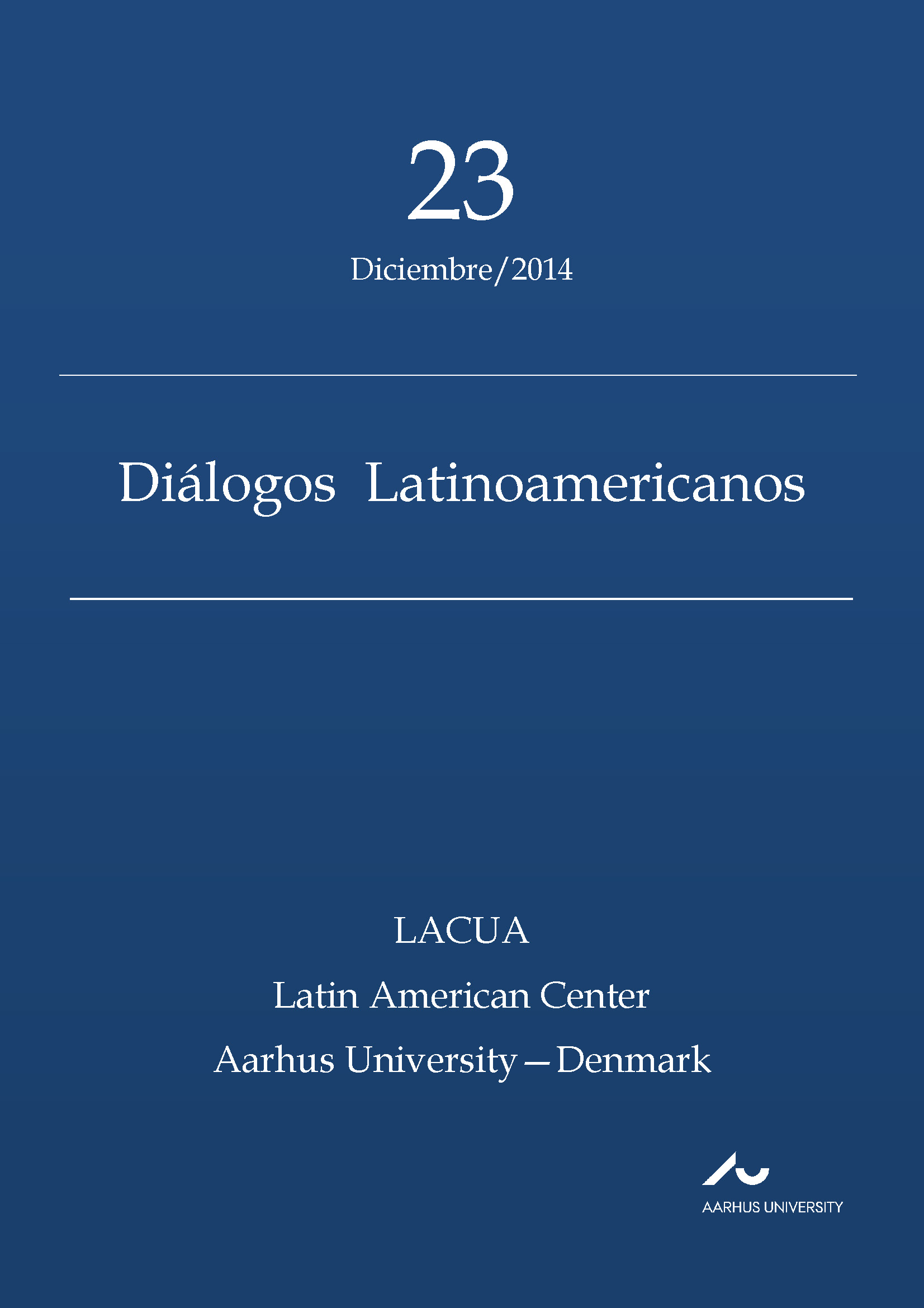Representaciones y beneficencia. Mujeres alemanas y judías en Argentina, siglo XX
DOI:
https://doi.org/10.7146/dl.v15i23.113128Keywords:
discourse, women, Argentina, Jewish community, German community, nationAbstract
Recently, historical and migration studies have started to pick up the multiple contributions
of native and immigrant women to the construction of the Argentinian nation, especially by
their participation in welfare, political and union associations. In this paper, we look into
two groups of women, Jewish and German women in Argentina. We focus on three texts
about German immigration to Argentina, with the aim to find out which is the discursive
representation of women in these texts, which properties and activities are predicated about
them, and to which extend they appear with independence of other (male) family members.
We detect that two texts support a 'traditional' representation, where women stay in the
background and have hardly any function with independence of their husbands or teachers.
The third text partly presents the same traits, whereas in other opportunities it highlights
female achievements.
References
cinco siglos. Buenos Aires: Sudamericana.
Barthes, Roland (1987 [1967]) 'El discurso de la historia', in El susurro del
lenguaje. Más allá de la palabra y de la escritura. Barcelona: Paidós, 163-
177.
Bryce, Benjamin (s/f) 'Laboring Germans: Paternalism, Social Welfare, and
Ethnicity in Buenos Aires, 1880-1930'. Manuscrito, 1-30.
Carey, Alina (2011) '¿Qué sucede en casa? Mujeres inmigrantes de la
Norpatagonia andina (1900-1935)'. La Aljaba XV (segunda época), 159-174.
URL
http://www.cihuatl.pueg.unam.mx/pinakes/userdocs/assusr/A2/A2_738.pdf
[fecha de consulta 21 Junio 2014].
de Paz Trueba, Yolanda (2010) 'Las no ciudadanas en la plaza pública. Educación
y beneficencia como garantía del orden social en Argentina a fines del siglo
XIX y principios del XX'. Cuadernos Interculturales 8:14, Universidad de
Valparaíso, 35-53. URL http://www.redalyc.org/pdf/552/55217005004.pdf
[fecha de consulta 21 Junio 2014].
Deutsch, Sandra McGee (2010) Crossing Borders, Claiming a Nation. A History of
Argentine Jewish Women, 1880-1955. Durham and London: Duke University
Press.
Friedmann, Germán C. (s/f) 'La ‘Otra Alemania’ y las identidades judeoalemanas'.
Historia Política.com, 1-18. URL
http://www.unsam.edu.ar/escuelas/politica/centro_historia_politica/jornada/Fri
edmann.pdf [fecha de consulta 22 Agosto 2014].
Giddens, Anthony (1995) 'Elementos de la teoría de la estructuración', in La
constitución de la sociedad. Buenos Aires: Amorrortu, 39-75.
Guy, Donna J. (2009) 'La filantropía judía en Buenos Aires y el papel de la mujer',
in Yolanda Eraso (ed.) Mujeres y asistencia social en Latinoamérica, siglos
XIX y XX. Argentina, Colombia, México, Perú y Uruguay. Córdoba: Alción,
167-198.
Guy, Donna J. (2011) Las mujeres y la construcción del estado de bienestar.
Caridad y creación de derechos en Argentina. Buenos Aires: Prometeo.
Hopfengärtner, Johanna (2005) 'Zwischen Emigration und Immigration.
Deutschsprachige jüdische Frauen in Argentinien', in Sandra Carreras (ed.)
Der Nationalsozialismus und Lateinamerika. Institutionen – Repräsentationen
– Wissenskonstrukte II. Berlín: Iberoamerikanisches Institut, 7-20. URL
http://www.iai.spk-berlin.de/fileadmin/dokumentenbibliothek/Ibero-
Online/Ibero_Online_03_2.pdf [fecha de consulta 11 Julio 2014].
Lavrin, Asunción (2005) Mujeres, feminismo y cambio social en Argentina, Chile y
Uruguay. 1890-1940. Santiago de Chile: Centro de Investigaciones Diego
Barros Arana.
Pedraza, Silvia (1991) 'Women and Migration: The Social Consequences of
Gender'. Annual Review of Sociology 17, 303-325. URL
http://www.iom.cz/files/Women_and_migration_Social_Consequences_of_Ge
nder_1_.pdf [fecha de consulta 21 Junio 2014].
Piller, Ingrid y Pavlenko, Aneta (2007) 'Globalization, Gender and
Multilingualism'. Gender Studies and Foreign Language Teaching, Tübingen:
Narr, 15-30. URL
http://www.zpie.pwsz.krosno.pl/download/gfx/pwszkrosno/pl/defaultaktualnos
ci/675/5/1/s03_eb_piller3.pdf [fecha de consulta 16 Enero 2011].
Fuentes
Hoffmann, Werner (1979) 'Die Deutschen in Argentinien', in Hartmut Fröschle
(ed.) Die Deutschen in Lateinamerika. Schicksal und Leistung.
Tübingen/Basel: Horst Erdmann Verlag, 40-145.
Lütge, Wilhelm; Hoffmann, Werner; Körner, Karl Wilhelm; Klingenfuss, Karl
(1980) Deutsche in Argentinien (2ª ed. de Geschichte des Deutschtums in
Argentinien; editado por el Club Alemán de Buenos Aires). Buenos Aires:
Alemann.
Sarramone, Alberto (2011) Alemanes en la Argentina. Inmigración, refugiados
judíos y nazis con Perón. Buenos Aires: Ediciones B.
Downloads
Published
How to Cite
Issue
Section
License
Counting from volume 31 (2022), articles published in Diálogos Latinoamericanos are licensed under CC-BY 4.0. Read more about the license terms here https://creativecommons.org/licenses/by/4.0/.
No Creative Commons license applied on volumes 1-30. All rights reserved by the authors. Readers may download, read, and link to the articles, but they cannot republish the articles.
With the publication of volume 31 (2022), authors retain the full copyright to their articles and give Diálogos Latinoamericanos the right to the first publication. Authors also retain copyright to earlier versions of manuscripts, such as the submitted (pre-print) and the accepted manuscript (post-print).
Copyright to articles published in volumes 1-30 is held by the authors.





